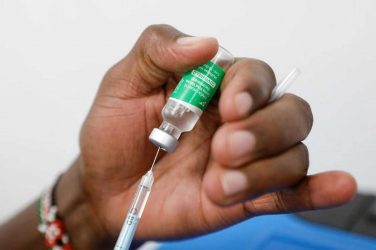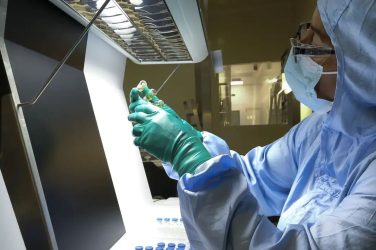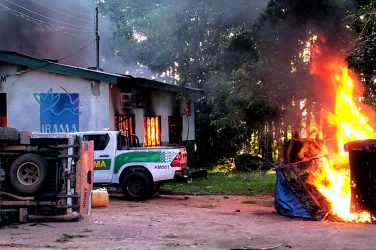 Antônio Nardi, executive secretary at Brazil’s Health Ministry, signed a deal which ensures the work of Cuban doctors under the Mais Médicos program for another three years.
Antônio Nardi, executive secretary at Brazil’s Health Ministry, signed a deal which ensures the work of Cuban doctors under the Mais Médicos program for another three years.
The signing took place at the Pan-American Health Organization (PAHO), in Washington, during a ceremony held as part of the 55th Meeting of the PAHO Directing Council.
The move had been announced last week by Brazilian Health Minister Ricardo Barros, and PAHO Brazil representative Joaquín Molina.
Health care professionals who have worked in the program for three years will be replaced with new medics as of November. Cuban medics currently occupy over 60 percent of the total 18.2 thousand posts that make up the initiative all across Brazil.

Nonetheless, openings potentially attractive to Brazilian doctors will be made available starting in 2017.
The forecast is that between December 2016 and April 2017 about 2,000 jobs will be announced. And in three years, they aim to replace 4,000 Cubans doctors for Brazilian professionals interested in the jobs.
“In fact, the More Doctors program received great approval, the quality of the work of Cuban nationals is always recognized. The creation of new medical schools will make more professionals to meet the Brazilian market’s demand that will be posted in notices. We need Brazilian professionals to be really willing to occupy the offices,” said Barros.
He explained that while this does not happen, the agreement with PAHO and Cuba will continue coping with the demand.
Currently, the More Doctors program has 18,240 posts for primary care services in 4,058 municipalities and 34 indigenous districts. Among doctors doing these jobs, 11,429 are Cuban cooperators (62.6%), 5,274 are Brazilian doctors trained in Brazil (29%) and 1,537 foreigners and Brazilians trained abroad (8.4%). The program reaches 72.8% of Brazilian municipalities and benefits 63 million people.
The law extending the program for three years was signed by President Michel Temer on September 12. It waives the requirement from foreign exchange students and Brazilian doctors trained abroad participating in the More Doctors program to validate their medical degrees to work in the country7.
Adjustments
Barros also announced that the funds paid for the participants will be adjusted in 9%. The payment, which was US$ 3,248 per doctor, will increase to $3,540 in January 2017. Because of the extension of the program, the amount will also be adjusted for inflation. Doctors working in indigenous areas also had their housing assistance and food benefits increased, which is $845.00 since August.
Both the payment and the assistance for doctors working in indigenous areas are paid by the Ministry of Health. According to Barros, the budget impact of the program is US$ 828.75 million in 2016. In 2017, it will be US$ 920 million.
Created in 2013, the More Doctors program has improved primary care services by taking doctors to areas where there are not enough professionals.
In addition to providing urgent medical care, the program aims to train doctors and specialists. By 2017, 11,500 new undergraduate places in medicine schools shall be created, in addition to 12,400 medical residency positions.
More Health Workers
At the end of July, Brazil’s Health Ministry had announced that approximately 1,500 medics — a group formed by Cuban nationals and Brazilians holding a foreign diploma — had been added to the More Doctors Program, noting that most professionals in this stage are doctors from Cuba.
Of this total, some 600 workers at that time had started the welcoming phase and were doing paperwork before they could be sent to the municipalities to do their job.
Doctors holding a diploma issued overseas go through a 3-week welcoming period, during which they are taught about Brazil’s public health care system, known as SUS, with a focus on basic care, common diseases in Brazil, as well as ethical and legal topics in medical practice. Medics must pass evaluation tests during this stage to be allowed to work in the program.
ABr












